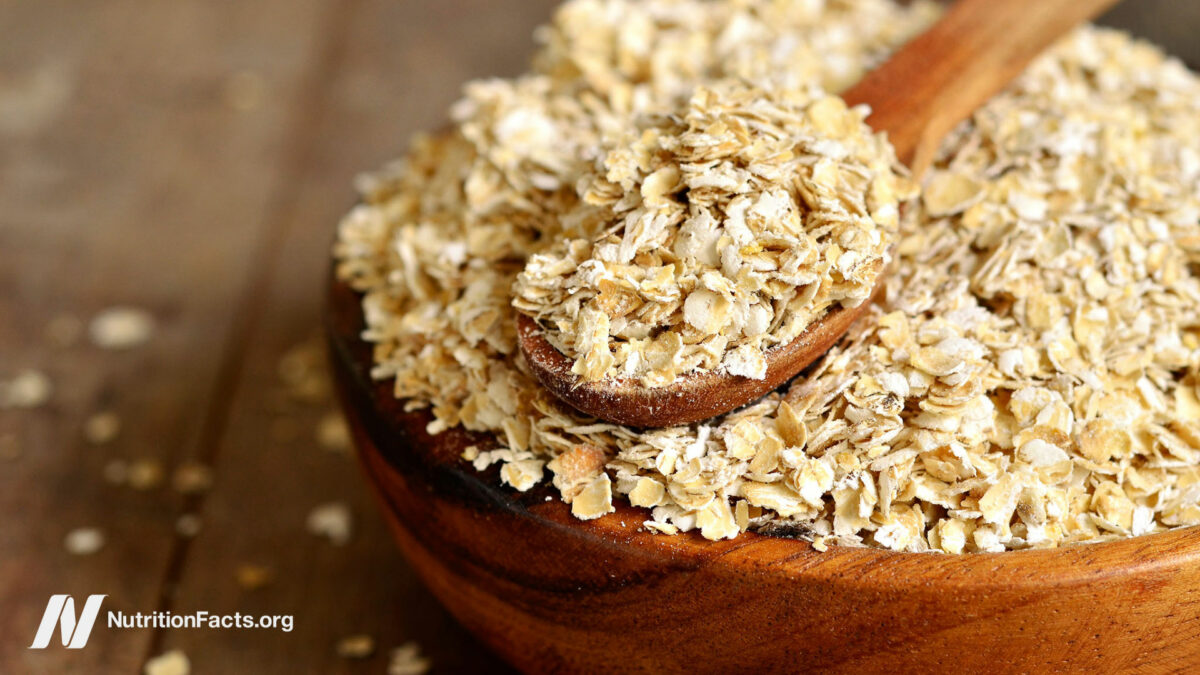
Blood Sugar
The American Heart Association came up with “The Simple 7” factors that can lead to a healthier life: not smoking, not being overweight, being “very active” (defined as the equivalent of walking at least 22 minutes a day), eating healthier (for example, lots of fruits and vegetables), having below-average cholesterol, having normal blood pressure, and having normal blood sugar levels.
What is blood sugar and how can elevated levels affect our health?
Our digestive system breaks down the carbohydrates we eat into a simple sugar called glucose, the primary fuel powering all the cells in our body. Glucose enters our circulatory system as blood sugar and is then stored in our muscles to be used for energy. To get from the bloodstream into our cells, glucose requires insulin. Think of insulin as the key that unlocks the doors to our cells to allow glucose to enter. Every time we eat a meal, insulin is released by our pancreas to help shuttle the glucose into our cells. Without insulin, our cells can’t accept glucose, and, as a result, the glucose builds up in our blood. Over time, this extra sugar can damage the blood vessels throughout the body.
Diabetes mellitus is characterized by chronically elevated levels of sugar in our blood. This is because either our pancreas gland isn’t making enough insulin (the hormone that keeps our blood sugar in check) or because our body becomes resistant to insulin’s effects. If too much sugar builds up in our blood, it can overwhelm the kidneys and spill into our urine. Diabetes can lead to blindness, kidney failure, heart attacks, and stroke. High blood sugar can also damage our nerves, creating a condition known as neuropathy that can cause numbness, tingling, and pain.
For substantiation of any statements of fact from the peer-reviewed medical literature, please see the associated videos below.
Popular Videos for Blood Sugar


How Circadian Rhythms Affect Blood Sugar Levels
The same meal eaten at the wrong time of day can double blood sugars.
How Does Oatmeal Help with Blood Sugars?
The prebiotic fiber in oats helps to explain why oatmeal can improve diabetic control.
How to Prevent Blood Sugar & Triglyceride Spikes After Meals
Within hours of eating an unhealthy meal, we can get a spike in inflammation, crippling...
Lipotoxicity: How Saturated Fat Raises Blood Sugar
The reason those eating plant-based diets have less fat buildup in their muscle cells and...
Better to Exercise Before or After Meals for Weight Loss and Blood Sugar Control?
If people burn more fat on the days they exercise before eating, rather than afterwards,...All Videos for Blood Sugar
-

Mercury in High Fructose Corn Syrup
There doesn’t appear to be any difference between the negative effects of high fructose corn syrup and table sugar on body fat, blood pressure, blood sugars, triglycerides, or cholesterol, but high-fructose corn syrup did appear to be more pro-inflammatory.
-

Golden vs Brown Flaxseed: Which Has More Benefits?
Which kind of flaxseed has more cancer-fighting lignans?
-

Risks and Benefits of Nicotinamide (NAM), a NAD+ Booster
The metabolism of NAM may deplete our methylation capacity, interfering with the normal metabolism of hormones and neurotransmitters, and produce a neurotoxic compound in the process.
-

Natural Ozempic Alternatives: Boosting GLP-1 with Diet and Lifestyle
Certain spices and the quinine in tonic water can boost GLP-1, but at what cost?
-

Comparing the Benefits and Side Effects of Ozempic (Semaglutide)
Obesity can be so devastating to our health that the downsides of any effective drug would have to be significant to outweigh its weight-loss benefits.
-

Is Ozempic (Semaglutide) Safe? Does It Increase Cancer Risk?
How common are serious potential side effects of GLP-1 weight-loss drugs, such as suicide, pancreatitis, bowel obstruction, thyroid cancer, and pancreatic cancer?
-

Why Do Most Users Quit Ozempic and What Happens When You Stop?
Why does weight loss plateau on GLP-1 drugs, and why do most stop using them within just three months even if they can afford them?
-

GLP-1 Weight-Loss Drugs Like Ozempic (Semaglutide): How Do They Work? Are They Effective?
What is the hormone GLP-1, what separates GLP-1 mimics from previous weight-loss drugs, and how much weight may be lost before weight loss plateaus?
-

The Best Way to Boost NAD+: Supplements vs. Diet (webinar recording)
The pros and cons of all the NAD+ supplements and what are the ways to boost NAD+ naturally with diet and lifestyle?
-

The Downside to Banana Smoothies for Polyphenol Absorption
An enzyme in bananas can destroy some of the phytonutrients in berries and cocoa, but there is a way to reduce the effect.
-

How to Prevent Skin Cancer with Diet
A randomized controlled trial found that a low-fat diet can result in a ten-fold lower skin cancer rate.
-

The TAME Trial: Targeting Aging with Metformin
If you have diabetes, metformin can make things better, but if you don’t, the drug may make things worse.
-

Does Metformin Work as a Life-Extension Drug?
Amazingly, diabetics placed on metformin may live longer lives than those who never got diabetes in the first place.
-

Does Resveratrol Benefit Our Metabolic Health?
Which conditions have resveratrol supplements been shown to help?
-

The Supplement Shown to Slow Age-Related Hearing Loss
Some studies found that higher levels of folate in the blood seem to correlate with better hearing, so researchers decided to put it to the test.
-

Update on Vegetarian Stroke Risk
Those eating more plant-based diets have lower risk of having a stroke, including both bleeding and clotting strokes.
-

Yoga Put to the Test for Headaches, Diabetes, Osteoarthritis, and the Elderly
What happens when real yoga is compared to sham yoga?
-

Better to Exercise Before or After Meals for Weight Loss and Blood Sugar Control?
If people burn more fat on the days they exercise before eating, rather than afterwards, why doesn’t this translate into more weight loss?
-

The Best Time to Exercise for Weight Loss
Burn off significantly more body fat exercising before meals, rather than after them.
-

Plant-Based Diet for Treating and Reversing Stage 3 Kidney Disease
I share a touching story of the power of plant-based eating for chronic kidney failure.
-

Update on Erythritol Sweetener Safety: Are There Side Effects?
Why are erythritol levels in the blood associated with higher levels of chronic disease?
-

How Much Erythritol Sweetener Is Too Much?
What are the maximum acute and daily doses for adults and children to avoid gastrointestinal effects?
-

Oatmeal Diet Put to the Test for Diabetes Treatment
What are the extraordinary, lasting benefits we may get from a few days of an oatmeal diet?
-

How Does Oatmeal Help with Blood Sugars?
The prebiotic fiber in oats helps to explain why oatmeal can improve diabetic control.
-

Is Oatmeal Good for People with Diabetes?
Before there was insulin, there was the “oatmeal cure.”
-

Does Coffee Inhibit Iron Absorption? What Are the Effects of Having Too Much Iron?
Coffee and common herbal teas impair iron absorption, which may help explain some of their benefits.
-

Vinegar for Blood Sugar Control and Polycystic Ovary Syndrome (PCOS) Treatment
Apple cider vinegar may help with ovulatory function in those with PCOS.
-

Answering Your Questions About Cholesterol and Diabetes
I answer some common questions I’ve been asked about cholesterol and diabetes, such as “What is the ideal LDL?” “What’s going on when someone eats healthfully but their glucose is still out of control?”
-

The Benefits of Fenugreek for Preventing and Treating Diabetes
The spice fenugreek contains 4-hydroxyisoleucine, a peculiar amino acid that may explain its benefits for controlling blood sugar.
-

Is Allulose a Healthy Sweetener?
Are rare sugars like allulose a healthy alternative for traditional sweeteners?
-

Does the Sweetener Allulose Have Side Effects?
How safe are fourth-generation sweeteners, such as the rare sugar allulose?
-

Should You Get Personalized Genetic Risk Testing?
Overrated “precision medicine” may just be serving vested interests, and consumer DNA testing can be useless—or even worse.
-

Do the Health Benefits of Peanut Butter Include Longevity?
Why are nuts associated with decreased mortality, but not peanut butter?
-

The Healthiest Type of Potato
Are yellow-fleshed potatoes healthier than white? And, what about the glycoalkaloid toxins?
-

How to Reduce the Glycemic Impact of Potatoes
Broccoli, vinegar, and lemon juice are put to the test to blunt the glycemic index of white potatoes.
-

Pomegranate: A Natural Treatment for Rheumatoid Arthritis
Pomegranates are put to the test for weight loss, diabetes, COPD, prostate cancer, osteoarthritis, and rheumatoid arthritis.
-

Onions Put to the Test for Weight Loss, Cholesterol, and PCOS Treatment
Weight loss, cholesterol, and PCOS treatment with diet. What can an eighth of a teaspoon a day of onion powder do for body fat, and what can raw red onion do for cholesterol?
-

Fasting to Reverse Diabetes
By losing 15 percent of their body weight, nearly 90 percent of those who’ve had type 2 diabetes for less than four years can achieve remission.
-

Are Onions Beneficial for Testosterone, Osteoporosis, Allergies, and Cancer?
What did randomized controlled human trials find about the ways we may—or may not—benefit from eating onions?
-

Ochratoxin in Certain Herbs, Spices, and Wine
Most food crops are contaminated with fungal mycotoxins, but some foods are worse than others.
